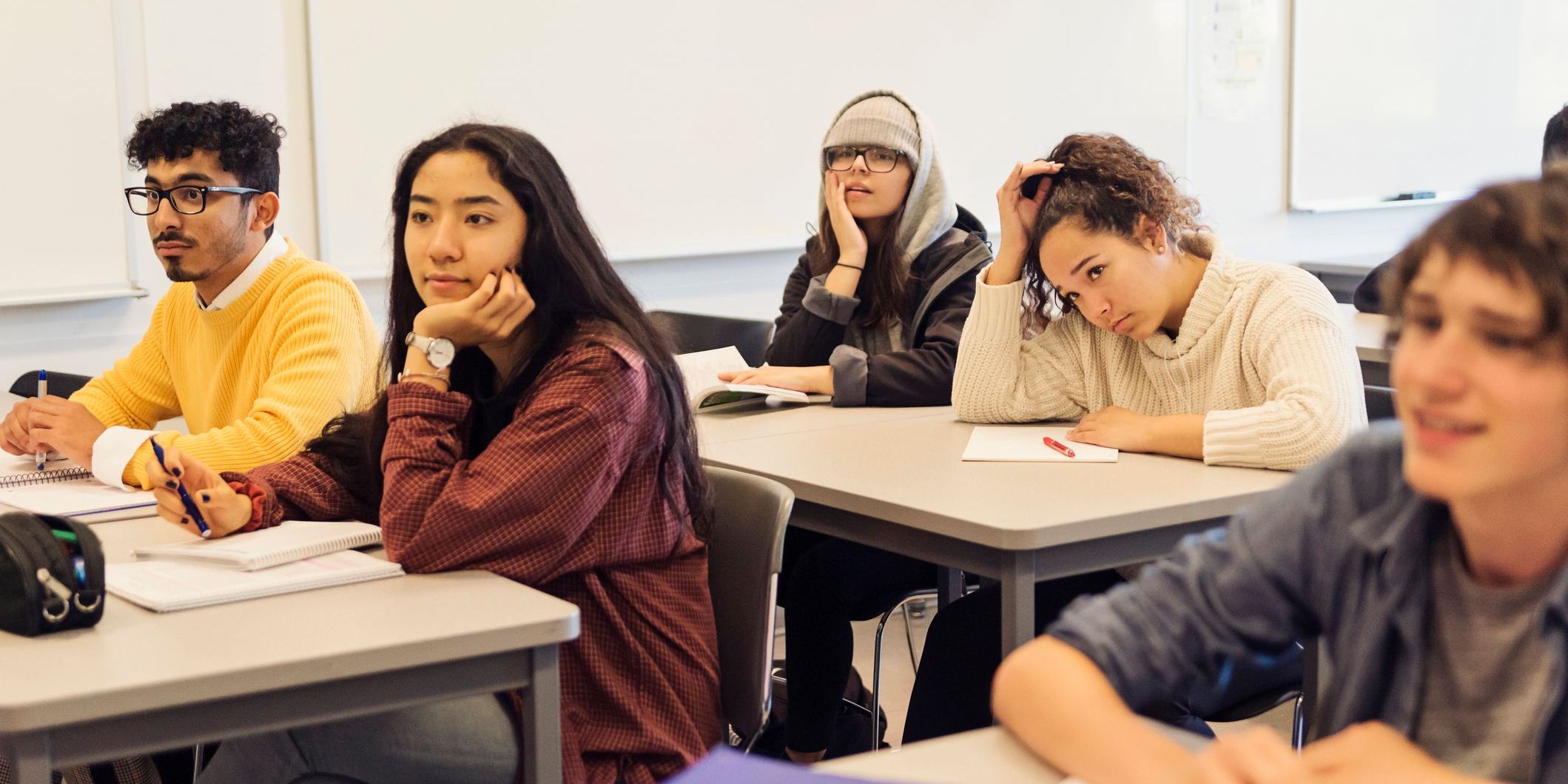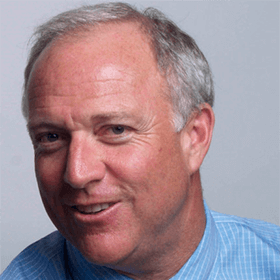English Professor Holly Bailey-Hofmann integrates climate change into her literature courses at West Los Angeles College, starting with a film providing basic facts about climate. Then students explore literature with diverse perspectives, including Octavia Butler’s acclaimed Parable of the Sower, a novel set in a post-apocalyptic earth.
Bailey-Hofmann’s students also read “A Solarpunk Manifesto,” which calls for a new literary genre that balances Butler’s dark themes with a resilient stance. She ends her course with a paper asking students to make a personal connection to what they’re learning by considering how climate change might affect their lives and careers.
“Every class can be a climate class,” Bailey-Hofmann said. “We all live on this planet, and climate change is going to affect all of us, no matter what our profession.”
The next session of the Community Colleges and Climate Futures webinar series, at 2 p.m. ET on Tuesday, August 12, will focus on resilient communities and workforce development. Featured speakers include College of the Menominee Nation President Christopher Caldwell, founder of the college’s award-winning Sustainable Development Institute.
In 2024, an Aspen Institute task force analyzed higher education’s role in meeting the global climate challenge. The top recommendation in Aspen’s Higher Ed Climate Action Plan focused on teaching and learning. “Higher education,” the report argued, must “ensure that all students have a foundational level of climate literacy [and] an opportunity for deeper learning about climate across disciplines and through workforce development.”
Climate literacy, as defined by the U.S. Global Change Research Program, starts with a basic understanding of global climate systems and humanity’s role in shaping them. It expands to include the ability to communicate effectively about climate issues and an understanding of the “well-informed actions” that can be taken to address them. The emphasis on the ability to take action is reinforced by the Aspen report:
“We believe young people will drive the necessary and sustained action we need to address climate changes, and we must partner with them to advance a more sustainable, resilient and equitable society.”
Community college faculty across the disciplines are stepping up to address this vision of climate literacy. A recent Community Colleges and Climate Futures webinar, part of a series presented by the Foundation for California Community Colleges and CCRC, included examples of innovative approaches to climate literacy within community colleges.
Bailey-Hofmann, who participated in the webinar, said students have been enthusiastic about her course. They “really love” the core of the Solarpunk ethos of providing solutions along with warnings. During the webinar, she shared a quote from a student:
“This course really changed how I think about climate change. Instead of seeing it as a problem that’s too big to solve, I started to see it as a chance for creativity and positive change. For example, reading Solarpunk helped me see how communities could come together to build a sustainable future.”
Significantly, Bailey-Hofmann’s course meets the college’s gen ed requirements. At universities, faculty often create climate-focused electives. Community college students have little time for electives, so faculty must find creative ways to infuse climate into required courses.
This is challenging but possible, even in disciplines with prescribed curricula. At LaGuardia Community College (CUNY), math faculty worked with the Center for Teaching and Learning to redesign word problems in an entry-level course to focus on issues of energy, sustainability, and climate. Their curricula was adopted by the entire math department.
Dean Shinta Hernandez of Montgomery College, another webinar participant, runs a professional development program that helps faculty across disciplines redesign courses to use open education resources and address the United Nations Sustainable Development Goals. Launched at Montgomery, the program now engages faculty at multiple colleges in the U.S., Canada, and Asia.
In Hernandez’s program, pairs of interdisciplinary faculty help each other with the redesign process. Using open and active pedagogy, faculty engage students in collaborative inquiry projects addressing issues of sustainability and social justice. Students gather information and develop multimedia communication products—videos, pamphlets, and other community education tools.
“The students want to do something useful,” said Hernandez. “They want to make a difference.”
Hernandez shared examples of “renewable” assignments in a wide range of disciplines. A Montgomery Spanish teacher had upper-level students research recycling and create Spanish language infographics to educate the local Spanish-speaking community. A political scientist at Arizona’s Mesa Community College had students study the carbon footprint of local businesses and make recommendations to the business owners and policymakers. Montgomery anthropology students incorporated sustainability into ethnographic studies of local communities and curated a digital museum for those communities.
Addressing climate topics with student-centered pedagogy has proven effective. “Not only has my personal behavior changed, but my career path has also changed,” wrote a student about the recycling assignment. “I’m still a communications major, but now I want to work in the communications department of an environmental organization to help protect the planet I love so much.”
These examples illustrate key considerations for faculty seeking to incorporate climate education into their courses. The first is to build upon your discipline. You don’t have to become a climate change specialist. These faculty found ways to incorporate slices of climate information into key issues and tools of their disciplines, from literature to math, Spanish, and anthropology.
Second, avoid pounding students with devastating statistics about looming disaster. Climate anxiety can be paralyzing. Integrating hope is key to keeping students engaged.
Third, have students make personal connections and contribute to solutions. Creating policy recommendations and educational infographics pushes students to synthesize learning and articulate it in their own terms. It also contributes to a vital sense of hope and purpose.
Infusing climate into community college courses can reach students from underserved communities with a vital role to play. Connecting academic disciplines to pressing issues can make learning more relevant and build key learning competencies, such as critical thinking and the ability to communicate and collaborate across difference. Done well, climate pedagogy can help students prepare for active engagement in climate issues, using their skills, knowledge, and intelligence to help shape more livable futures for us all.





